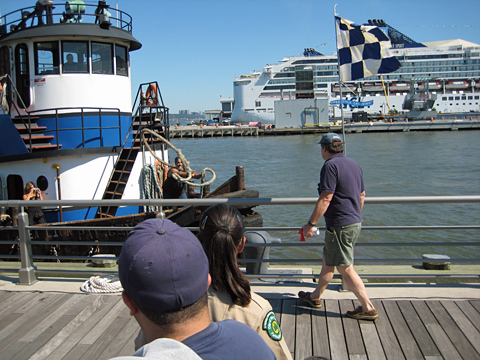Google has again attempted to clarify its terms of service on its blog. Mike Yang, at Official Google Blog: Making terms of service clearer writes:
To be clear: our terms do not claim ownership of your content — what you create is yours and remains yours. But in lawyer-speak, we need to ask for a “license” (which basically means your permission) to display this content to the wider world when that’s what you intend.
I don’t believe Google has ever attempted to “claim ownership” of content; my comments have always been about the specific terms of the license. Yang goes on to discuss other license agreements; he includes links to the terms of service for Amazon, Ebay, and Facebook.
Amazon and eBay both claim broad rights to content posted on their services; they do not limit these rights in any substantive manner. With respect to products, this makes sense on a certain level–Amazon and eBay have a vested interest in attempting to sell their users’ products as much as possible. I question why these rights need to be perpetual and irrevocable, but it’s fairly clear to me that if the companies do well, the sellers on Amazon and eBay receive indirect compensation via higher sales. In Amazon’s case, I do not believe it is appropriate that Amazon retains all of the rights to reviews and comments posted by their users; however, I don’t post comments or reviews on Amazon.
Facebook, who has been reviled for their terms of service (see here and here), has a very consumer-friendly clause in their license agreement with respect to user content. While they do initially claim a perpetual, irrevocable license, the terms of service go on to state:
If you choose to remove your User Content, the license granted above will automatically expire, however you acknowledge that the Company may retain archived copies of your User Content. Facebook does not assert any ownership over your User Content; rather, as between us and you, subject to the rights granted to us in these Terms, you retain full ownership of all of your User Content and any intellectual property rights or other proprietary rights associated with your User Content.
Worded another way, Facebook won’t use your content at all if you “remove” it, but they don’t want to be responsible from deleting your content in the form of “archived copies” from their servers.
The solution for Google remains the same: remove the “promote” term, and modify their “irrevocable” and “perpetual” license to allow people to terminate the license unless the user is explicitly warned at the time of submitting their content. If anything, I would like to see Google’s base terms of service provide for a lesser set of rights; additional terms of service for other products could be used to increase these rights rather than limit these rights.
I am disappointed that Yang chose to contrast Google’s terms of service with those of eBay and Amazon: the companies are distinctly different than Google. Google’s comparison with Facebook is a bit more apt, but as I just pointed out, the Facebook license can be terminated by the creator of the content.
I’ve made quite a few posts on this topic, but it’s an important issue to me. First, I feel that people should be aware of what happens to the works they create when they upload them to the Internet. Penalties for copyright infringement for unregistered works in the United State are fairly weak as it is, and once you grant a company or person an perpetual and irrevocable license you have absolutely no way to ask people to stop using your material. Second, I like Google as a company and I enjoy using their services. I would like them to succeed, and I believe that these kinds of problems can hinder Google in the long run. As distinct from some other companies, I believe Google tries to operate in a clear and open manner, and I would like them to continue to do so.
Like this:
Like Loading...




























